Last year, the New York Times published a piece asking “30 experts to think big, but realistically, about solutions […] to address the opioid crisis.”
Almost all of the experts were white. A clear majority were white men, and the panel appeared to include zero Black men. The article, written by a white guy, credits two other white guys—Dr. Daniel Ciccarone and Dr. Tom Frieden—for “their help on assembling the panel.”
The makeup of the panel was disturbing. But it wasn’t shocking, given that the “opioid crisis” has been largely painted as a white phenomenon by the national media. That story, though, is false.
National overdose death rates were still overall higher among white people than Black people as of 2017—but the gap is narrowing. And fast-rising overdose rates are far too high among the Black population. National figures also mask heightened risk faced by many specific Black population groups.
Opioid-involved overdose deaths among Black men aged 40-69, for example, increased 245 percent from 2014 to 2017. According to the CDC, drug overdose fatalities increased among Black people in urban settings by 41 percent in 2016, outpacing all other racial groups. The number of opioid-related deaths among Black people has grown higher than that of the general population in numerous states such as Missouri, Illinois, Minnesota, Wisconsin, West Virginia and Washington, DC. In New York City, Black overdose rates have recently outstripped white ones.
And when it comes to the legal consequences of drug use, grotesque disparities remain. Black people are arrested for possession of illicit drugs at more than twice the rate of white people and arrested for selling at more than triple that rate, though Black and white people use and sell illicit drugs at similar rates. And the sentences meted out to people of color are on average four years longer than those for white people with the same charge.
“Our [experts’] answers […] suggest that the severity of the opioid crisis is breaking down longstanding divisions between public health officials and law enforcement,” stated that New York Times article, “with over two-thirds of our panel including increased funding for law enforcement or international interdiction efforts.” Might these answers have been different if the panel had been more diverse?
“The lack of discussion of Black overdose deaths in the national opioid discourse further marginalizes Black people, and is highly consistent with a history of framing the addictions of people of color as deserving of criminal punishment, rather than worthy of medical treatment,” wrote Keturah James and Ayana Jordan in a 2018 paper titled “The Opioid Crisis in Black Communities,” in the Journal of Law, Medicine and Ethics.
In honor of Black History Month, the Drug Policy Alliance’s Office of Academic Engagement has been tweeting daily about Black harm reduction and drug policy reform advocates. We’ve gathered a list here, along with photos and bios.
When the New York Times or anyone else next wants to talk to drug policy experts, we encourage them to take a look at this list from DPA, which will be updated throughout the month.
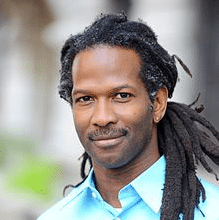
Dr. Carl Hart, PhD, Chair of the Department of Psychology and Dirk Ziff Professor of Psychology (in Psychiatry) at Columbia University, and author of High Price: A Neuroscientist’s Journey of Self-Discovery That Challenges Everything You Know About Drugs and Society.
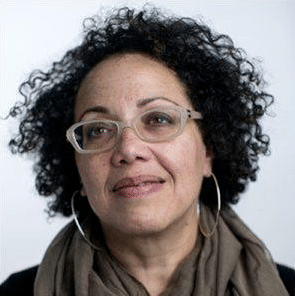
Monique Tula, Executive Director of the Harm Reduction Coalition, a national advocacy and capacity-building organization that promotes the health and dignity of individuals and communities impacted by drug use.

Ricky Blumenthal, PhD, Professor of Preventive Medicine and Associate Dean for Social Justice at the Keck School of Medicine, University of Southern California. His research has established the effectiveness of syringe exchange programs, tested novel interventions and strategies to reduce HIV risk and improve HIV testing among injection drug users and men who have sex with men, documented how community conditions contribute to health disparities, and examined health policy implementation.
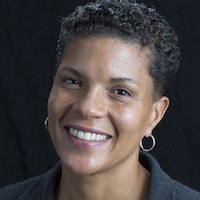
Michelle Alexander, civil rights lawyer, advocate and legal scholar. Author of The New Jim Crow: Mass Incarceration in the Age of Colorblindness.
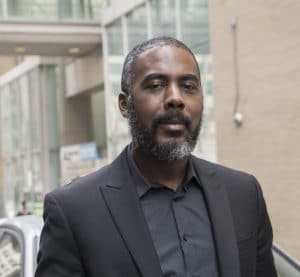
Samuel K. Roberts, PhD, Director of Columbia University’s Institute for Research in African American Studies (IRAAS), Associate Professor of History (School of Arts & Sciences), Associate Professor of Sociomedical Sciences (Mailman School of Public Health) and author of Infectious Fear: Politics, Disease, and the Health Effects of Segregation. Roberts is currently researching and writing a book-length project, tentatively titled “To Enter a Society Which Doesn’t Want Them”: Race and Recovery in America’s Heroin Capital.

Deon Elaine Haywood, Executive Director, Women with a Vision, a community-based non-profit founded by a grassroots collective of African-American women in response to the spread of HIV/AIDS in communities of color. For more than 25 years, Deon has worked as a human rights defender and advocate for Black women, working class and low-income women, and LGBTQ communities in the Deep South.
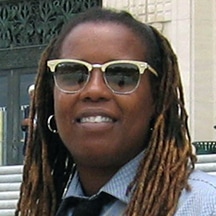
Shaquita Borden, Director of Research & Evaluation, Women with a Vision in New Orleans. Borden works to improve the health of the city’s residents using a participatory approach to understand the structural drivers of women’s health disparities. She earned her M.P.H. from Louisiana State University’s School of Public Health.

Khary Rigg, Assistant Professor in the Department of Mental Health Law & Policy and a Faculty Affiliate of the Louis de la Parte Florida Mental Health Institute at University of South Florida (USF). Dr. Rigg’s research sits at the intersection of addiction, public health, and medicine, and focuses on opioid misuse/mortality, drug use within club/nightlife settings, and community-based behavioral health interventions/research.

Deborah Peterson-Small, Founder of Break the Chains, an organization dedicated to engaging communities impacted by punitive drug policies to become advocates for an end to the failed “war on drugs.”
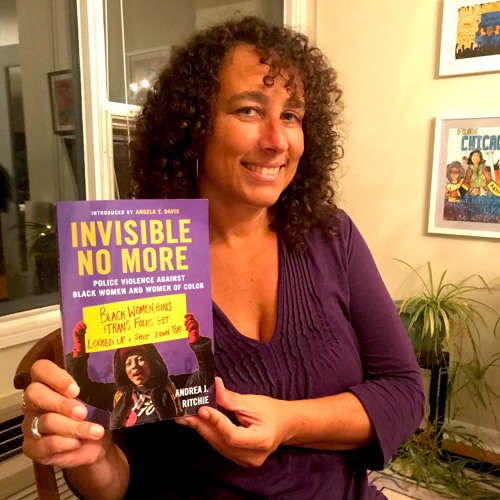
Andrea Ritchie, Researcher-in-Residence on Race, Gender, Sexuality, and Criminalization, Barnard Center for Research on Women, and author of Invisible No More: Police Violence Against Black Women and Women of Color and co-author of Say Her Name: Resisting Police Brutality Against Black Women, A Roadmap for Change: Federal Policy Recommendations For Addressing the Criminalization of LGBT People and People Living with HIV, and Queer (In)Justice: The Criminalization of LGBT People in the United States.

Jasmine Tyler, Advocacy Director, US Program, Human Rights Watch. Prior to joining HRW, Tyler was the senior policy advisor for drug policy and global health in the Washington, D.C. office of Open Society Foundations, where she worked with Congress and the executive branch to shape domestic and international policy.

Tracy Pugh, DrPH Sociomedical Sciences Candidate at Columbia University Mailman School of Public Health, studies the intersections of policy, punishment, and stigma. Prior to Columbia, she worked to advance a public health approach to drug policy for New York at the Drug Policy Alliance and, before that, at the New York Academy of Medicine.
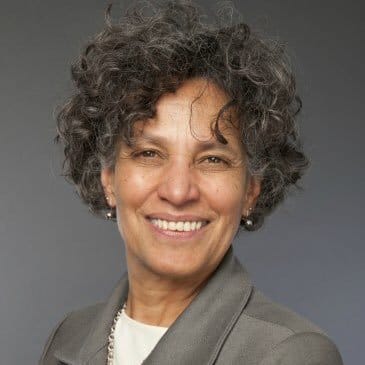
Dr. Mary T. Bassett, Director of the FXB Center for Health and Human Rights at Harvard University, and FXB Professor of the Practice of Health and Human Rights at the Harvard School of Public Health. With more than 30 years of experience in public health, Dr. Bassett has dedicated her career to advancing health equity. Prior to her directorship at the FXB Center, Dr. Bassett served for four years as commissioner of Health for New York City.

Dr. Chinazo Cunningham, Professor, Department of Medicine, Department of Family and Social Medicine, and Department of Psychiatry and Behavioral Sciences, Director of Diversity Affairs for the Department of Medicine, Associate Chief, Division of General Internal Medicine, and Director of Research Resources, Department of Medicine and Director, General Internal Medicine Fellowship Program, Department of Medicine, Albert Einstein College of Medicine. Since 1998, Dr. Cunningham has been providing care, developing programs, and conducting research focused on marginalized populations including people who use drugs with or at-risk for HIV infection.

Kassandra Frederique, New York State Director at the Drug Policy Alliance (DPA). Co-author of Blueprint for a Public Health and Safety Approach to Drug Policy and advisor to Ithaca Mayor Svante Myrick’s The Ithaca Plan, Frederique cultivates and mobilizes powerful coalitions in communities devastated by drug misuse and drug criminalization to develop municipal strategies to foster healthier and safer communities.

Tracie Gardner, Vice President of Policy Advocacy, Legal Action Center, the only non-profit law and policy organization in the United States whose sole mission is to fight discrimination against people with histories of addiction, HIV/AIDS, or criminal records, and to advocate for sound public policies in these areas.

Helena Hansen, MD, PhD, Associate Professor, Department of Psychiatry, NYU Langone Health, research psychiatrist at the New York State Office of Mental Health’s Nathan Kline Institute, author of the forthcoming Addicted to Christ Remaking Men in Puerto Rican Pentecostal Drug Ministries and director and writer of the film Managing the Fix, a documentary about race, class and opioid medications.




Show Comments